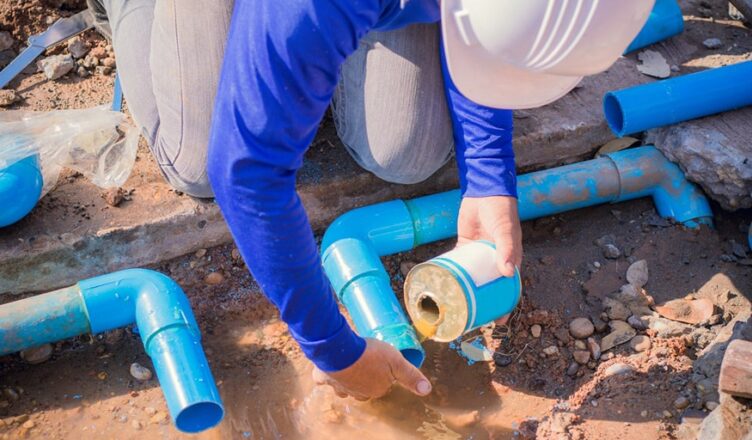A leaking soil pipe is one of those problems that often goes unnoticed – until it becomes impossible to ignore. Positioned outside many homes, these vertical pipes carry waste from toilets, sinks, and baths down into the underground drainage system. When they start leaking, it’s not just unpleasant – it’s a health hazard and a potential sign of wider damage.
This article explains how to recognise a leaking soil pipe, what causes the problem, and what steps to take to fix it safely and permanently.
What Is a Soil Pipe and What Does It Do?
Soil pipes (also known as soil stacks or vent pipes) are essential to your home’s plumbing. They:
- Collect waste water and sewage from bathrooms and kitchens
- Transport waste down to the underground drain system
- Vent gases safely above roof level, reducing smells indoors
Most modern soil stacks are made from plastic (PVC), but older homes may still have cast-iron systems, which are more prone to corrosion and leaks.
Signs That Your External Soil Pipe Is Leaking
Leaks from soil pipes aren’t always immediately obvious, especially in multi-storey properties. Look for:
- Wet or stained walls near the pipe
- Dripping sounds during or after flushing
- Visible cracks or separation at joints
- Waste water pooling at the base of the pipe
- Strong sewage smells around the pipe
In some cases, the leak may not be constant – it might only occur when the toilet is flushed or after heavy rainfall.
Common Causes of Soil Pipe Leaks
Several factors can lead to a leak in your soil pipe:
- Joint failure – The rubber seals or connectors between pipe sections may degrade or come loose over time.
- Physical damage – Impact from ladders, falling debris, or even thermal expansion can cause pipes to crack.
- Poor installation – Pipes that aren’t properly supported or aligned can strain under their own weight and start leaking.
- Blockages inside the stack – Pressure build-up from trapped waste can force water out through weak points.
- Material degradation – Older cast iron pipes can rust, flake, and eventually split open.
Why It Shouldn’t Be Ignored
A leaking soil pipe may seem like a minor nuisance, but it can escalate quickly. Risks include:
- Health hazards – Leaking sewage carries bacteria and poses a risk to anyone nearby.
- Structural damage – Continuous leaking near brick or timber can cause rot, dampness, or subsidence.
- Smells and pests – Leaks often attract rodents and insects, especially in warm months.
- Legal obligations – In some areas, you could be fined if a leak affects neighbouring properties or the public.
The longer the issue is left unresolved, the more complicated and expensive the repair can become.
What to Do if You Spot a Leak
If you see signs of leakage:
- Avoid direct contact with any wastewater – Treat it as hazardous.
- Stop using affected fixtures if possible – This helps reduce pressure in the pipe.
- Take photos of the affected area – This may help if insurance or landlord involvement is required.
- Call a drainage professional – Visual inspection alone is not enough. Experts can use CCTV or pressure testing to assess the entire system.
Repair options vary depending on the material and extent of the damage. They may include:
- Resealing or replacing pipe joints
- Removing and replacing damaged sections
- Upgrading from cast iron to modern plastic systems
- Clearing blockages contributing to pressure build-up
For safe and compliant repairs, it’s best to rely on experienced soil pipe repair specialists who understand both the plumbing and drainage aspects of the issue.
Preventing Future Leaks
While soil pipes are generally low maintenance, you can reduce the risk of leaks with a few proactive steps:
- Don’t lean ladders or heavy objects against the stack
- Watch for early signs of staining or smells
- Avoid pouring fats or harsh chemicals down the drain
- Schedule periodic drain inspections, especially in older properties
Good habits and early detection are the most effective ways to avoid disruptive repairs later on.
Let Professionals Handle the Dirty Work
Dealing with a leaking soil pipe isn’t just unpleasant – it can quickly become a serious health and property issue. Trying to fix it yourself is often unsafe and can lead to incomplete repairs or additional damage.
If you suspect a leak, don’t delay. A quick response from qualified soil pipe repair specialists can restore proper drainage, eliminate health risks, and help protect the long-term condition of your home.

